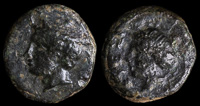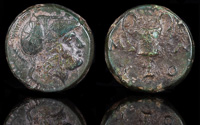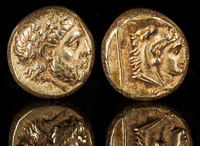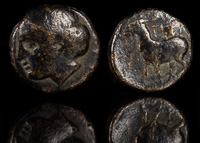Lesbos
Traditional founding of Eresos, likely as part of the Aeolian Greek colonization of Lesbos.
The poetess Sappho, born in Eresos, becomes active.
The Battle of Lade is fought between the Ionians under Dionysos of Phokaia and the Persians. Chios has the largest contingent, followed by Miletos, Lesbos (probably Mytilene), Samos, Teos, Priene, Erythrai, Myos, and Phokaia. Most fled during the battle, but the Chians put up a bold resistance before defeat.
Athens detaches Kolone , Ophrynion, and Larissa Ptolemais from Mytilene in punishment for their revolt.
Peloponnesian War ends in an Athenian surrender, and as a result Adramytteion is ruled by Mytilene. Residents of Aegina are allowed to return to their island.
Eresos, Byzantion, Chios,Mytilene, Methymna, Rhodes, Thebes, Korkyra, Eretria, Kios, Samos, Naxos, Andros, Myrina (Lembos), Hephaistia, Imbros, and Thasos join the Second Athenian League, reaffirming its alliance with Athens in response to the growing threat of Persian interference and internal Greek conflicts.
Approximate year that the tyrant Kleommis takes control of Methymna.
Aristotle moves from the court of Philip II, where he was the tutor to Alexander III, to Mytilene, where his friend Theophrastos lives.
Memnon of Rhodes captures Methymna.
Autophradates and Pharnabazos III subjugate Mytilene.
Chares is given command of Mytilene by Autophradates, but he is forced to surrender it to the Macedonians.
Memnon of Rhodes dies during a siege of Mytilene.
Methymna is recaptured by Hegelochos, general for Alexander III.
Pyrrha is destroyed by an earthquake and according to Pliny is swallowed by the sea.
Methymna allies formally with Rome.
Lucullus undertakes the Siege of Mytilene. Julius Caesar serves with him.




